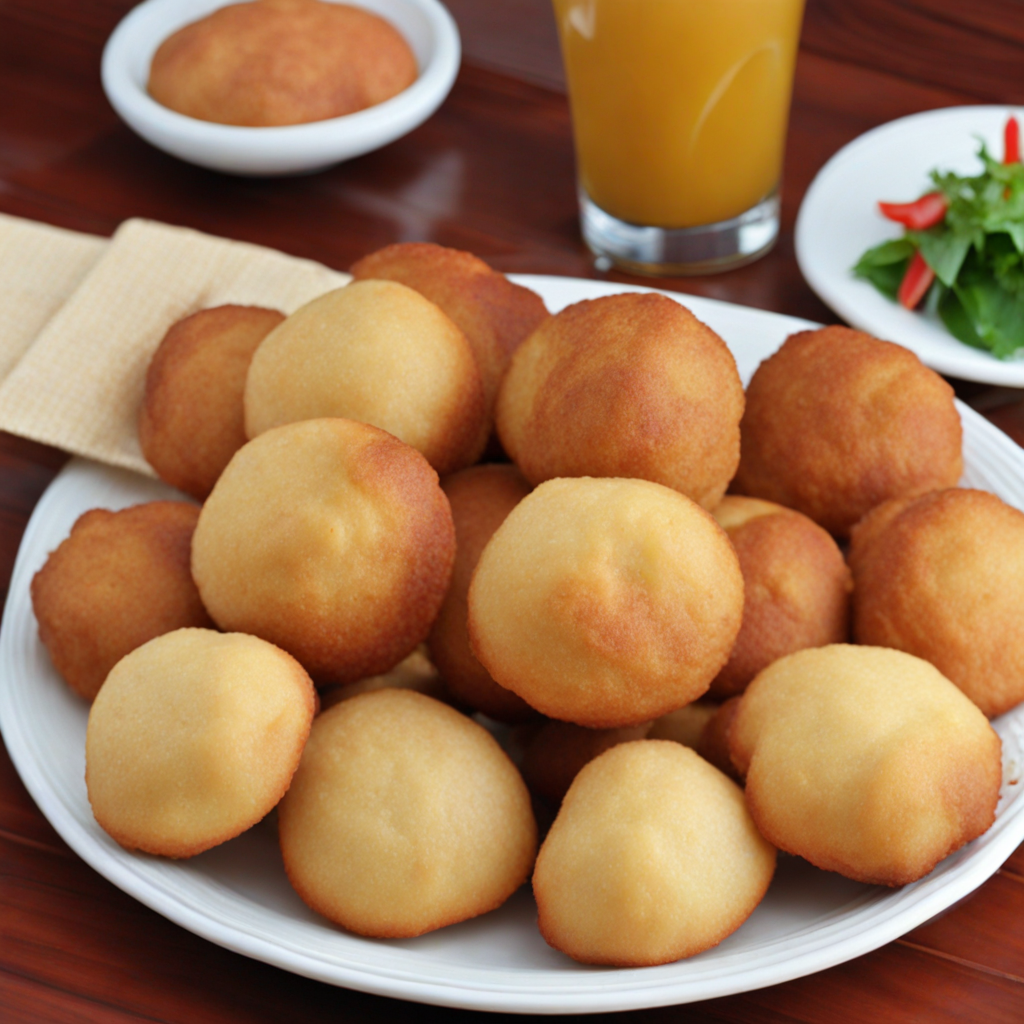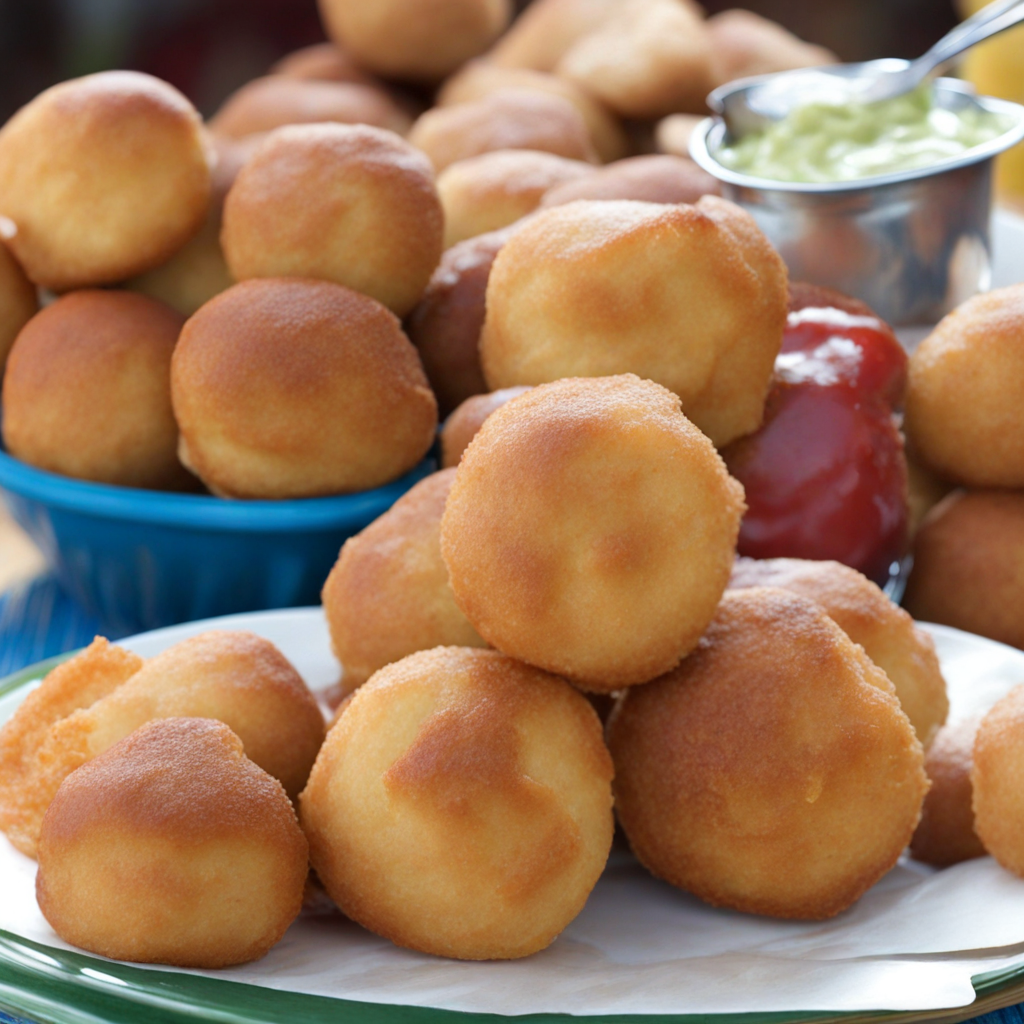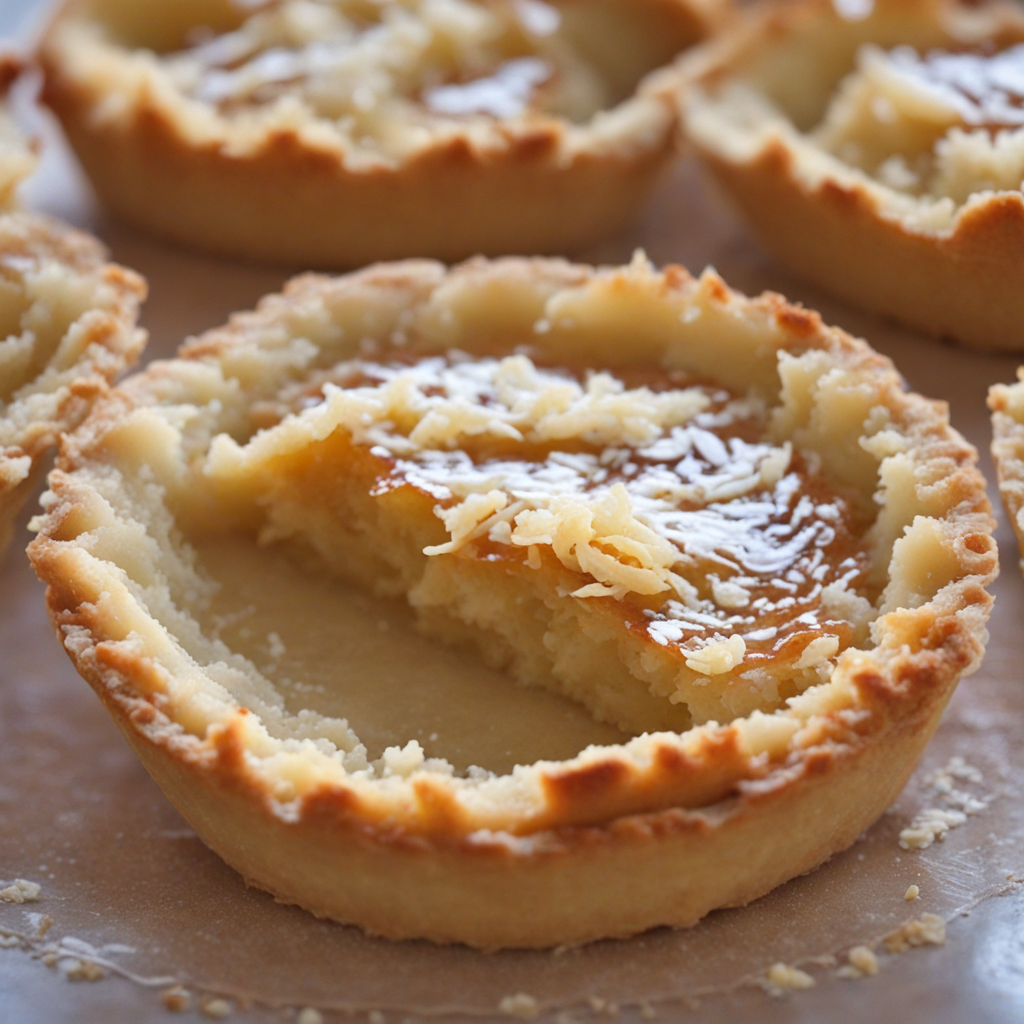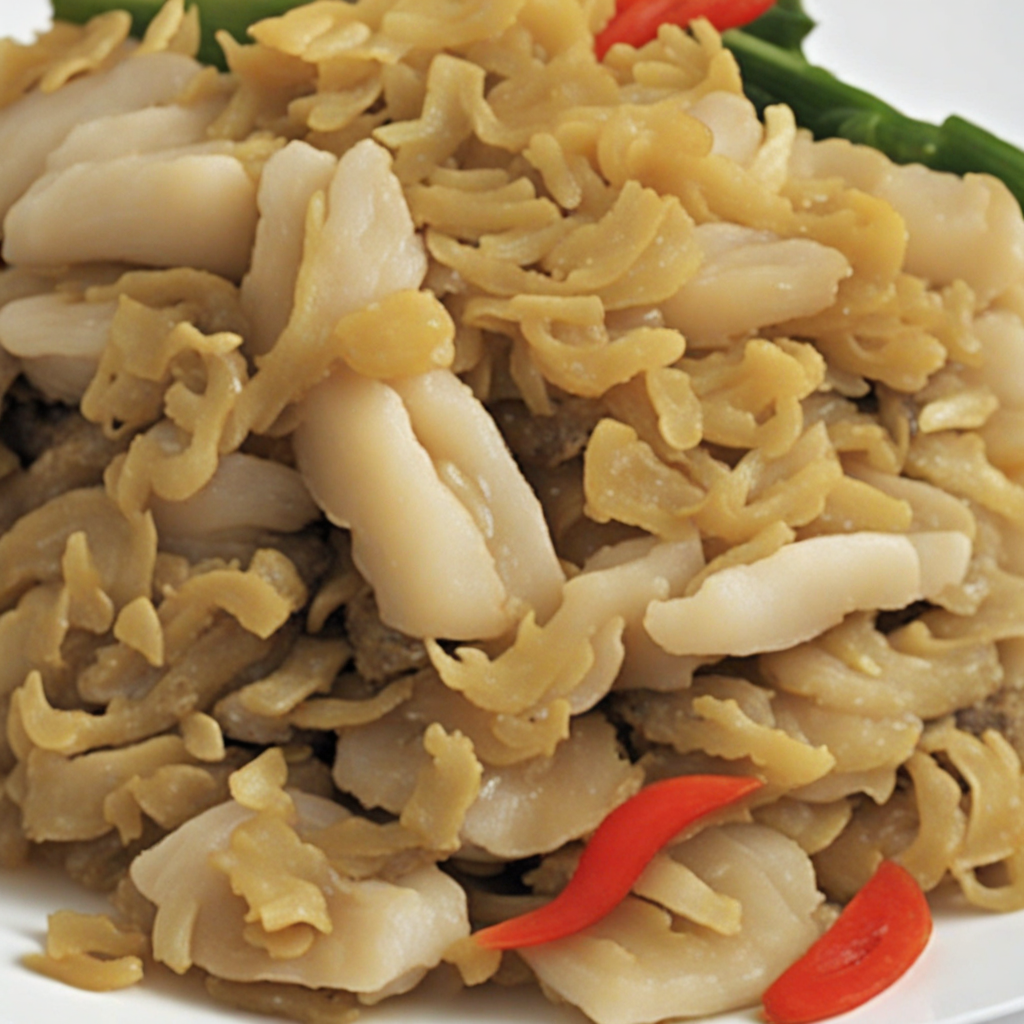Johnny Cakes
Johnny Cakes, a beloved dish from Antigua and Barbuda, are delightful cornmeal pancakes that have captured the hearts of many. Made primarily from cornmeal, water, and a pinch of salt, these cakes are simple yet incredibly satisfying. The texture is slightly crispy on the outside while remaining soft and fluffy on the inside. Traditionally, they are pan-fried to achieve that perfect golden-brown crust, making them a comforting staple that can be enjoyed at any meal of the day. These versatile cakes can be served as a side dish or as a base for a variety of toppings. Often, Johnny Cakes are paired with savory ingredients such as stewed meats, fish, or even vegetables, allowing their mild corn flavor to complement the bolder tastes of the main dishes. They can also be enjoyed with sweet toppings like honey, syrup, or fruit preserves, making them a delightful option for breakfast or a light snack. What sets Johnny Cakes apart is not just their taste but also their cultural significance. This dish has roots in the island’s indigenous and colonial history, embodying the fusion of flavors that characterize Caribbean cuisine. When you take a bite, you’re not just savoring a delicious food item; you're also experiencing a piece of Antiguan and Barbudan heritage. For anyone looking to expand their culinary horizons, Johnny Cakes offer a unique and enjoyable introduction to the flavors of the Caribbean.
How It Became This Dish
Origin of Johnny Cakes Johnny cakes, a beloved staple of Antigua and Barbuda, have a rich history that reflects the islands' diverse cultural influences. The name "Johnny cake" is believed to have originated from the Native American word “jonikake,” meaning “corncake.” This dish has its roots in the indigenous peoples of the Caribbean, who cultivated corn and used it as a primary ingredient in their diet. As European colonization progressed, especially during the 17th century, African slaves brought to the Caribbean islands contributed their own culinary practices, further enriching the island's food culture. The early versions of Johnny cakes were simple cornmeal flatbreads made with water and salt, cooked over an open flame or on hot stones. They served not only as sustenance for the enslaved population but also as a versatile food that could accompany various dishes. As the islands became a melting pot of cultures, with influences from the English, Spanish, and African traditions, the recipe for Johnny cakes evolved. The addition of ingredients such as coconut milk, sugar, and spices transformed the dish into a sweeter, more flavorful version that remains popular today. \n\n Cultural Significance Johnny cakes hold significant cultural importance in Antigua and Barbuda. They are often associated with national identity and pride, representing a distinct aspect of the islands' culinary heritage. The dish is commonly served at local gatherings, festivals, and family events, symbolizing unity and tradition among the people. It is not just a food item; it embodies the resilience and creativity of the Antiguan and Barbudan people in adapting their diets and preserving their heritage through generations. In many households, Johnny cakes are a breakfast staple, served alongside salt fish, stews, or even eggs. The dish has also gained popularity as a street food, often sold by vendors at markets and festivals, making it accessible to both locals and tourists. This widespread appeal has helped to elevate Johnny cakes as a culinary icon, showcasing the islands' rich history and the fusion of flavors that characterize Caribbean cuisine. \n\n Development Over Time As the years went by, Johnny cakes continued to evolve, reflecting changes in both agricultural practices and culinary trends. The introduction of modern cooking techniques and ingredients has led to variations in the preparation of Johnny cakes. Some recipes now include baking powder to give the cakes a lighter texture, while others incorporate finely diced vegetables or herbs for added flavor. The adaptability of Johnny cakes has allowed them to remain relevant in contemporary Antiguan and Barbudan cuisine. Chefs and home cooks alike experiment with new ingredients, infusing local produce and spices to create unique versions of the traditional dish. For instance, some may include local cheeses or even tropical fruits, further showcasing the islands' bountiful resources. \n\n Global Influence With the rise of tourism in Antigua and Barbuda, Johnny cakes have gained international visibility. Food enthusiasts and travelers are increasingly discovering the charm of Caribbean cuisine, and dishes like Johnny cakes have become a point of interest. Restaurants and culinary tours often highlight local specialties, providing travelers with an authentic taste of the islands. The global interest in Caribbean food has led to the proliferation of recipes and cooking demonstrations that feature Johnny cakes. Social media platforms have also played a role in popularizing this dish, with food bloggers and influencers sharing their own takes on the classic recipe. This exposure has not only helped preserve the traditional methods of cooking Johnny cakes but has also encouraged a new generation of cooks to explore their culinary heritage. \n\n Modern Variations Today, variations of Johnny cakes can be found throughout the Caribbean. Each island boasts its own unique take on the dish, often influenced by local ingredients and culinary traditions. While Antigua and Barbuda are known for their slightly sweet, fried Johnny cakes, other regions may prefer baked versions or those prepared with different types of flour, such as cassava or wheat. In Antigua, Johnny cakes are often enjoyed as a side with hearty meals or as a snack on their own. Street vendors may serve them hot, fresh from the fryer, with a side of spicy pepper sauce, tantalizing both locals and visitors. The versatility of the dish allows it to be adapted to various occasions, whether it be a casual family gathering or a festive celebration. \n\n Conclusion: A Culinary Legacy Johnny cakes represent more than just a food item; they are a testament to the history, culture, and resilience of the people of Antigua and Barbuda. From their indigenous origins to their evolution through cultural exchanges, these cakes have stood the test of time. They continue to be a source of pride and joy for the islands’ inhabitants and a delightful experience for those who visit. As culinary enthusiasts seek to connect with the rich tapestry of Caribbean cuisine, Johnny cakes serve as a delicious reminder of the islands' past and present. The ongoing evolution of this dish ensures that it will remain a vital part of Antigua and Barbuda's culinary landscape for generations to come, inviting all to share in its flavors and stories.
You may like
Discover local flavors from Antigua And Barbuda







